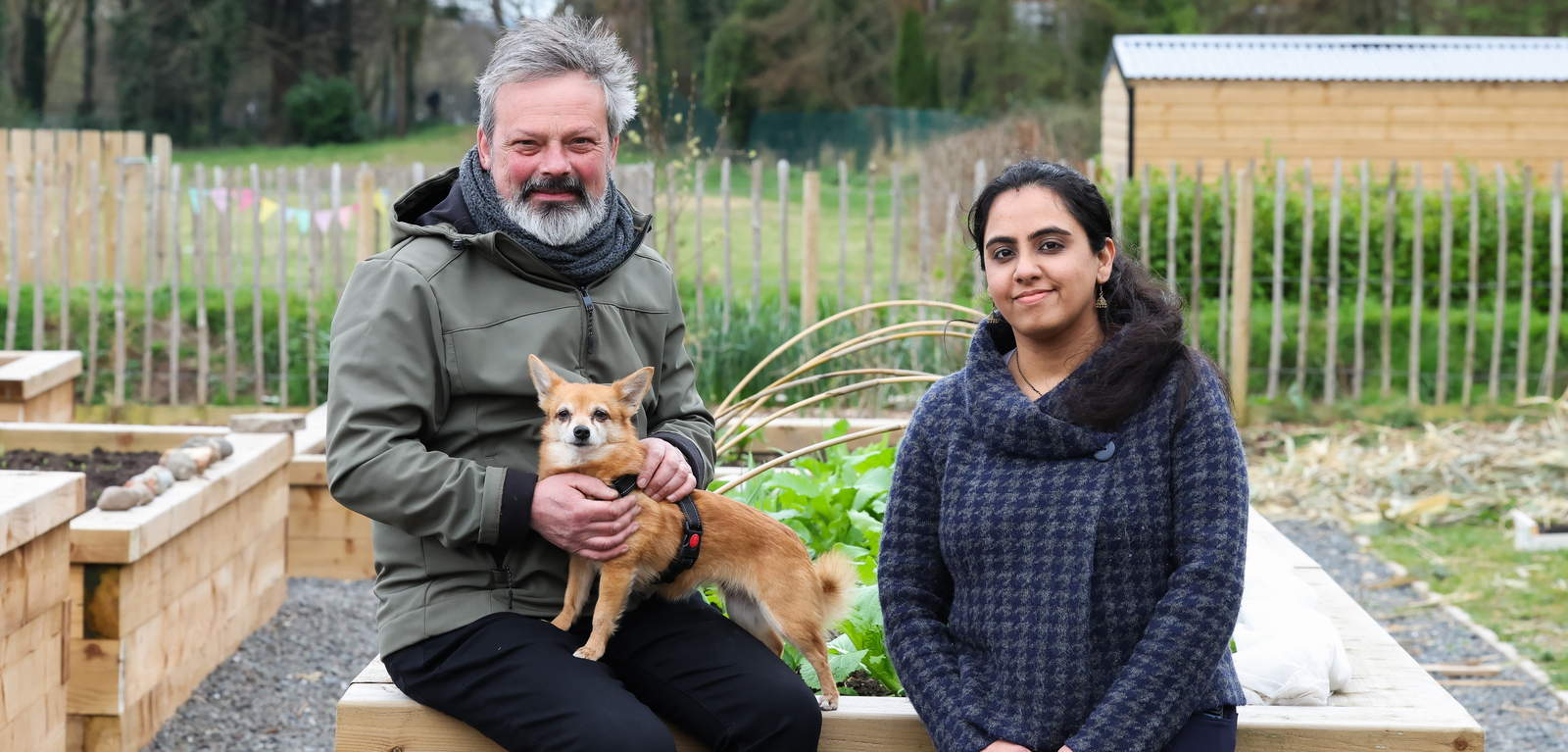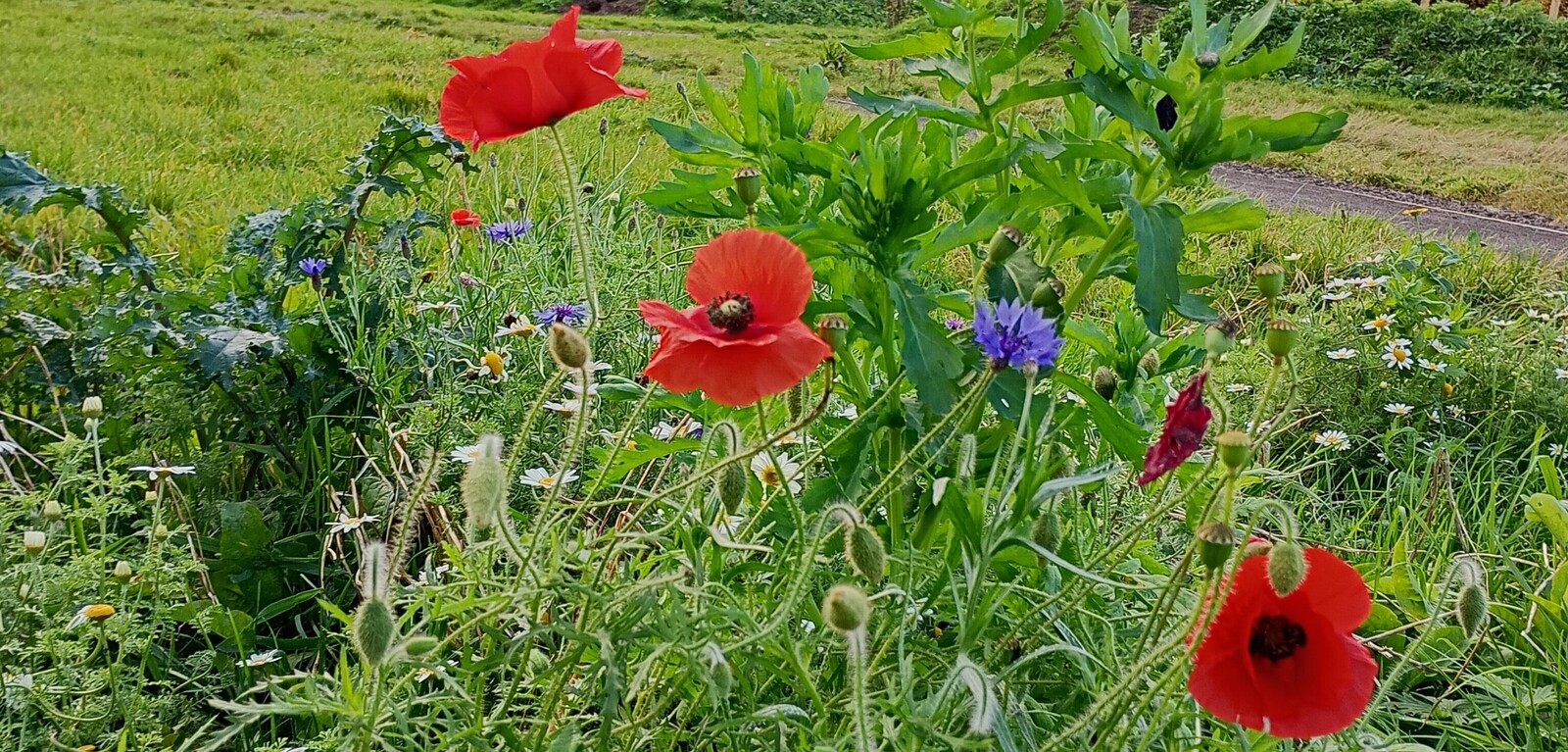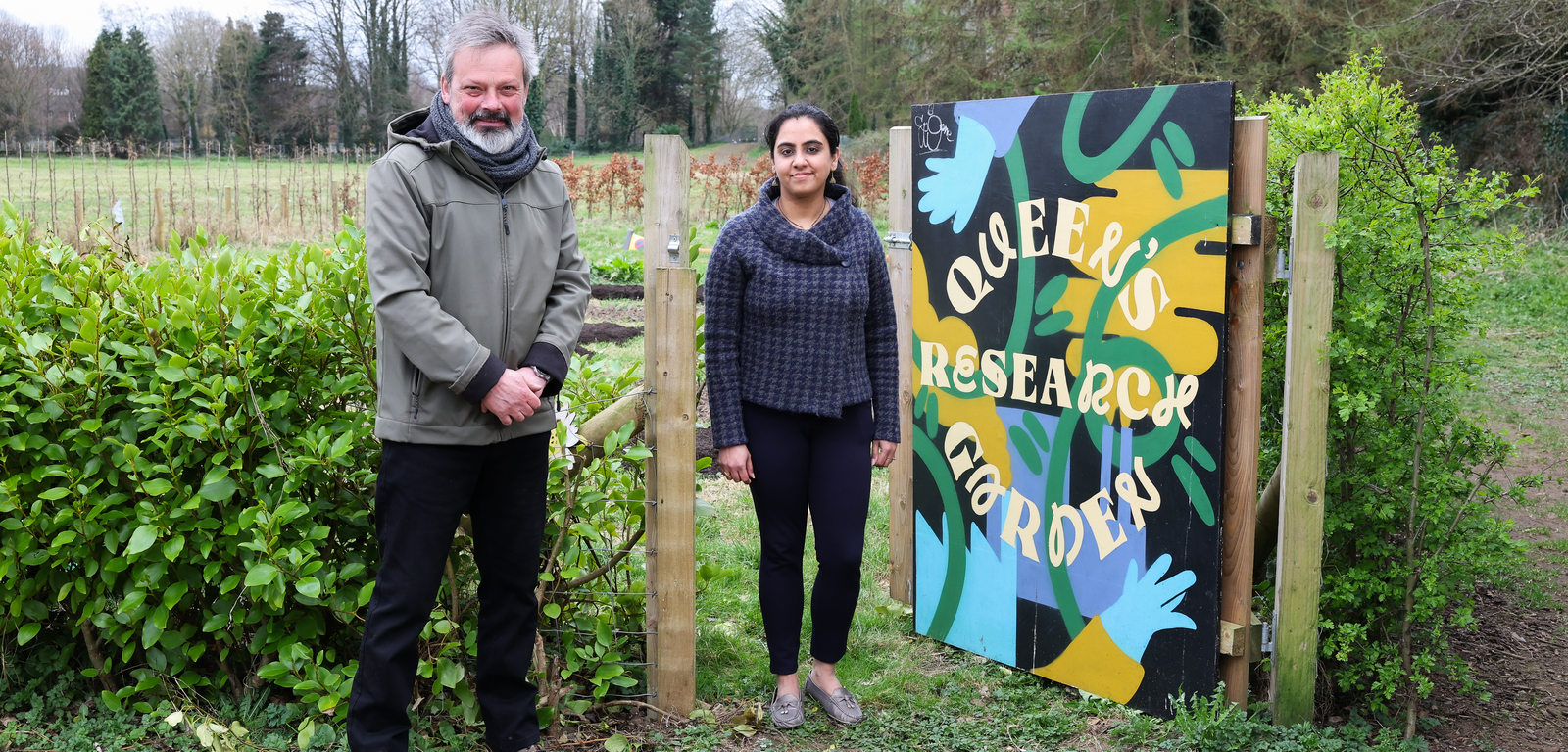UPSURGE: Pioneering Nature-Based Solutions for Healthier Cities
How Queen's researchers are transforming urban spaces and influencing global climate change.

A vibrant ecosystem of pollinator-friendly wildflowers, freshly planted native woodland and a flourishing community garden is emerging near Queen’s University.
It is visible when walking through Belfast's Lower Botanic Gardens – the plot of land that stretches behind Queen's Physical Education Centre (PEC) towards Stranmillis.

Poppies and wildflowers
THE FIRST HARVEST
The community garden, once a barren landscape, celebrated its first harvest in 2024, with a bonanza of fresh vegetables and fruit spilling out from the raised beds and willow teepees. It’s part of a much bigger research project called UPSURGE involving Queen’s, designed to improve city living by safeguarding our natural environment and protecting it from the effects of climate change.
While these improvements are wonderful in themselves, some of the methods being piloted could influence town-planning the world over, promoting the health and wellbeing of citizens by protecting the natural environment.
THE UPSURGE PROJECT
Five European cities – Belfast (Northern Ireland); Maribor (Slovenia); Budapest (Hungary); Katowice (Poland); and Breda (Netherlands) – make up the UPSURGE project, investigating how nature-based solutions can alleviate the effects of climate change.
In each city, the project brings together scientists, government policymakers and members of the public. In Belfast, the project is a partnership between Queen’s University, Belfast City Council and local stakeholders including community groups Friends of the Field (FoF) and Friends of Botanic.
THE LIVING LAB
Tucked away in Lower Botanic is a ‘living lab’. Here, researchers from Queen’s are using small plots to grow different crops, test soil, experiment with composting and measure carbon in the air, gathering data that will be shared with European partners.

The research garden
PhD student Jennifer Newell is exploring whether plants such as mustard can soak up heavy metals in polluted urban soil, making it safer to grow food in.
Or if mixing crushed basalt into soil can draw CO2 out of the air and into the earth, where it can be stored more safely. Carbon capture is of immense importance, experts say, if we’re to have any chance of meeting national Net Zero targets.
Another of Jennifer’s experiments is measuring the efficacy of clover and biochar, a form of charcoal, in increasing the nutrient value of the soil – a hot topic among farmers faced with the challenge of feeding a growing global population with highly degraded soil.
She said:
“It’s about trying to protect what we have and, in some cases, turn around the damage that’s been done, but always using solutions that are sustainable.
“Many of these nature-based solutions can have multiple benefits – for example drawing down CO2, increasing soil health, neutralising toxins and improving yields all at the same time – so they really could be a win-win.”
RECENT EXPERIMENTS
Post-doctoral researcher Dr Bakul Budhiraja explores how green spaces can ‘cool down’ urban spaces, which often overheat from an abundance of concrete, tarmac, buildings and traffic.
She said: “Not all green spaces are the same. What we’re finding is that the more natural a space is – the more biodiversity that exists – the better it reduces heat. Very manicured green spaces can increase heat, compounding urban hotspots.
“Heat inequality is being compared across the five UPSURGE cities to mark out vulnerable zones where nature-based solutions can be focussed.”
As part of the research, local volunteers have been given handheld sensors to measure air pollution and heat, collecting valuable data along busy roads such as Stranmillis Embankment compared to manicured green spaces and then the more natural surroundings of Lower Botanic.
Another recent experiment led by Belfast City Council created species-rich grasslands and ‘wetland scrapes’ along a newly installed pathway to soak up excess rainwater before it became a flood risk. This was a big success, lending weight to the argument for habitat enhancement to become a common feature in cities and towns to mitigate the frequency of flash floods and increase biodiversity.
WELLBEING BENEFITS
Colin Shaw, from FoF believes UPSURGE has huge potential to advance not only scientific research but also wellbeing for residents.
"The community garden is much more than a weekend hobby. It will serve as a platform for the public to engage with sustainable food growing, learn about biodiversity and promote environmental protection,” said Colin.
“We’re partnering with charities such as Grow NI to develop a community kitchen, using solar panels and rainwater harvesting, to address food poverty and train local groups in sustainable horticulture and agroecology.
"We’re working hand in hand with the Queen’s researchers to promote best practice and learn from each other so the project can impact at many different levels.”
Here’s how to keep up with developments:
The project has received funding from the European Union’s Horizon 2020 under grant agreement No. 10100381